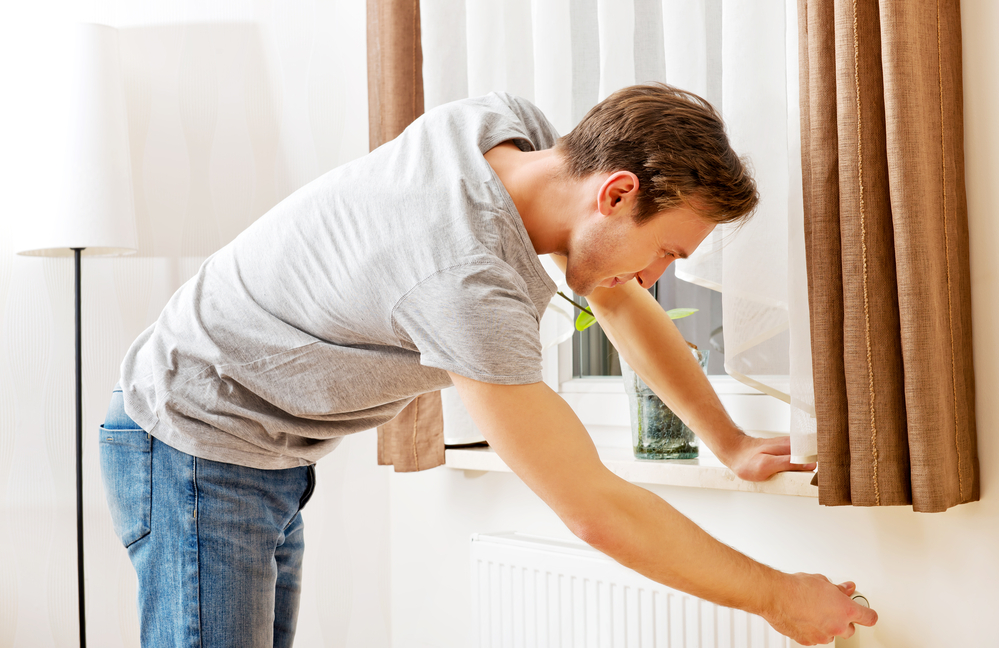You’ve braved the Dutch housing market and secured your dream home, and now it’s finally time to settle in and relax. But what about utilities?
Whether you’re moving to the Netherlands for the first time or simply moving to a new house, utilities are often the one element of our homes that we take for granted.
So, here are the five things we wish we knew about utilities in the Netherlands — and how you can make the smartest choices when it comes to setting them up!
READ MORE | Gas, electricity, water and more: the ultimate guide to utilities in the Netherlands
1. Prices are determined by where you live in the Netherlands
One thing that’s less leuk when setting up your utilities in the Netherlands is that your Netflix binging can be more or less expensive depending on where in the country you live.
And for once, it isn’t the big, bad tech company that’s tracking you down, but the Dutch internet providers. 😝
In the Netherlands, where you live determines which internet connection is available to you (DSL, cable, or fibre).
This, in turn, determines the price of your internet! For example, cable and fibre are more expensive than DSL, and while fibre provides great connection, it’s only available to around 40% of Dutch homes at the moment.
Prices are also determined by whether you choose a package deal or internet-only. PartnerPete can help find out what makes the most sense for you!
2. The type of monitor you choose will affect your energy prices
The Dutch love a korting, and that’s no different when it comes to utilities.
In the Netherlands, you can save on your energy by using power at “off-peak hours,” meaning you might want to charge your devices at night, do laundry on the weekend, and save the extra-long warm showers for the public holidays (though please also shower in between!).

However, to make use of the reduced night, weekend, and public holiday rates, you’ll need a smart meter. 🤓🌱 This is a special monitor that tracks the exact amount of energy you use, ensuring that you’re not paying unnecessarily high costs for your power.
READ MORE | 10 dang smart ways to save on energy costs in the Netherlands
The alternative is to have a traditional monitor. However, that’s no longer compatible with the off-peak hours discount — and that’ll show on your energy bill.
3. You can file complaints!
In the Netherlands, the Authority for Consumers and Markets (ASM) works to ensure fair competition and protect the interest of consumers.
As there isn’t much natural competition in the energy sector, ASM sets additional rules to make energy in the Netherlands affordable as well as to secure its availability and quality. 🙌
However, if you are unsatisfied with your meter reading, then this is what you can do:
- Inform your provider as soon as possible so that they can contact the netbeheerder (regional power network operator), who will look into the matter.
- If you don’t agree with the netbeheerder about the correct meter reading, you can contact the Dutch Foundation for Consumer Complaints Boards (De Geschillencommissie). They handle complaints about both the netbeheerder and your energy supplier;
- The Geschillencommissie will provide arbitrage and give a piece of binding advice (a.k.a a non-appealable ruling that you and the supplier or netbeheerder must both comply with).
To put it simply, always contact your supplier first thing and try to work it out with them and the netbeheerder. Only if that doesn’t work should you file a dispute with the Geschillencommissie.
Also, note that the Geschillencommissie charges a fee for their services.
4. Energy providers can fine you if you want to end your contract
The energy market in the Netherlands is privatised, meaning you’re free to pick and choose — and switch — energy suppliers as you like.
This also means that, with more than 45 Dutch suppliers to choose from, there are also many different kinds of contracts, rates, and conditions for you to consider (fun! 😅).

However, if there’s one thing we wish we’d known about switching energy suppliers, it’s that they can charge you for doing so.
Good to know: Dutch energy suppliers are obliged to keep you connected during a switch to another provider. So you won’t be left without heating in the Dutch winter!
Even though you’re free to change energy provider at any time you wish, you are still bound to your initial contract until it legally expires.
So, if you have a fixed-term contract (which gives you a set rate for a period of usually six months to three years), you cannot change suppliers before that period ends — unless you pay a fine.
READ MORE | To switch or not to switch: here’s how changing energy contracts can save you money
Initially, the fine would cost you between €50 and €124 per product (electricity and/or gas), but new laws mean there isn’t a fixed amount for this termination fine.
If all of this sounds like a lot, then give PartnerPete a call. They can help set up your utilities in the Netherlands in English and will make sure you get the best deals for you.
5. It can take up to a month to set up your internet
Yup, you read that right. Setting up your internet in the Netherlands can be a bit of a process, so make sure you get it sorted out as soon as possible. In some cases, it may take up to a month before you’re completely hooked up.
And since being without internet in this day and age is the equivalent of not being at all (an exaggeration perhaps, but how will you brag about finding a place to live if you don’t have WiFi?), you may want to find alternative ways to get connected.
Tip: Get familiar with places that provide public WiFi, or ask your neighbours if you can share theirs for a while! 🤗
So, before you sit down to relax in your new Dutch dream home, make sure you’ve made the best choices when it comes to the basics.
What is something you wish you’d known about utilities in the Netherlands? Tell us in the comments below!
This article was originally published in October 2021, and was fully updated in December 2023 for your reading pleasure.
The “Internet sharing” advice is bad advice. Not many people will be prepared to share their internet connection with total strangers because of the legal implications.
ISPs have the power to cut you off if a device connected to your modem is infected with a virus and is sending masses of spam. They will only reconnect you if you have solid proof that all devices connected to the router are virus free.
Than there’s the problem with downloaders or uploaders of pirated content. If your ip-address is found to be up- or downloading a lot of pirated content you may get a letter from the anti-piracy association Brein with a settlement proposal up to €12.500,–. Next is it up to you to prove that some stranger was the culprit.
At the same time the opposite may be possible; the owner of the shared internet connection blames you for being a pirate. And now you have to prove you didn’t illegally download or upload masses of music. videos or other content.
I know that a lot of people will find this hard to believe, but Brein is very powerful and is in close contact with the Dutch authorities.